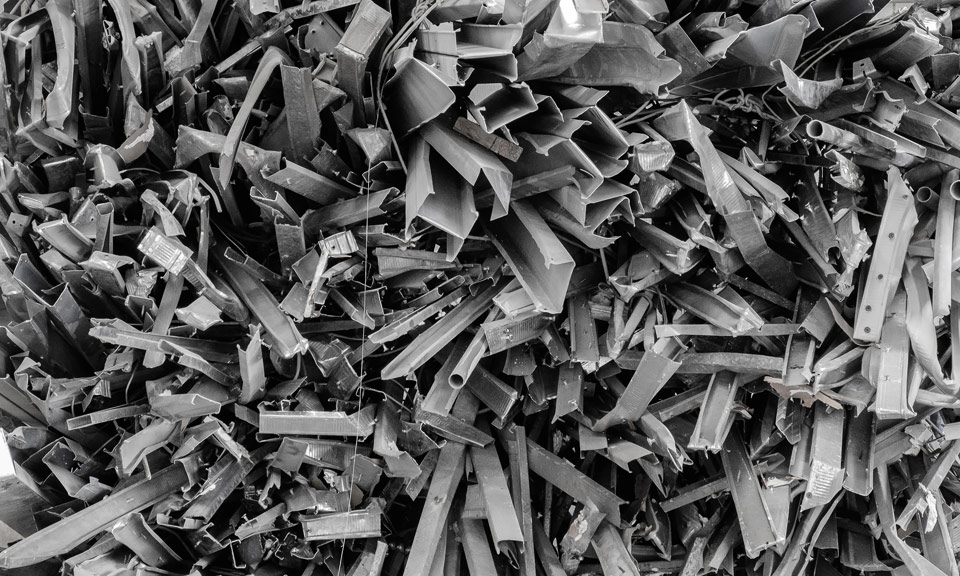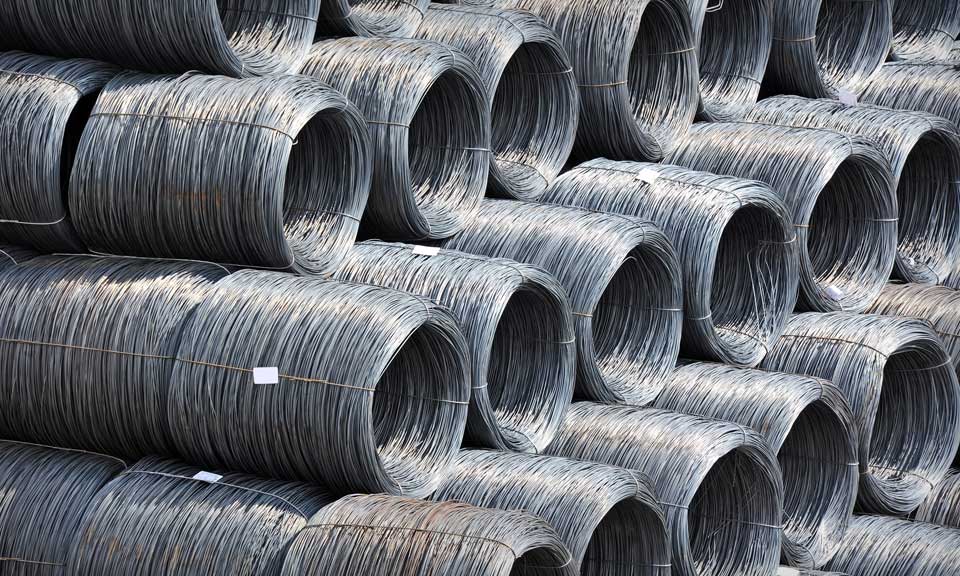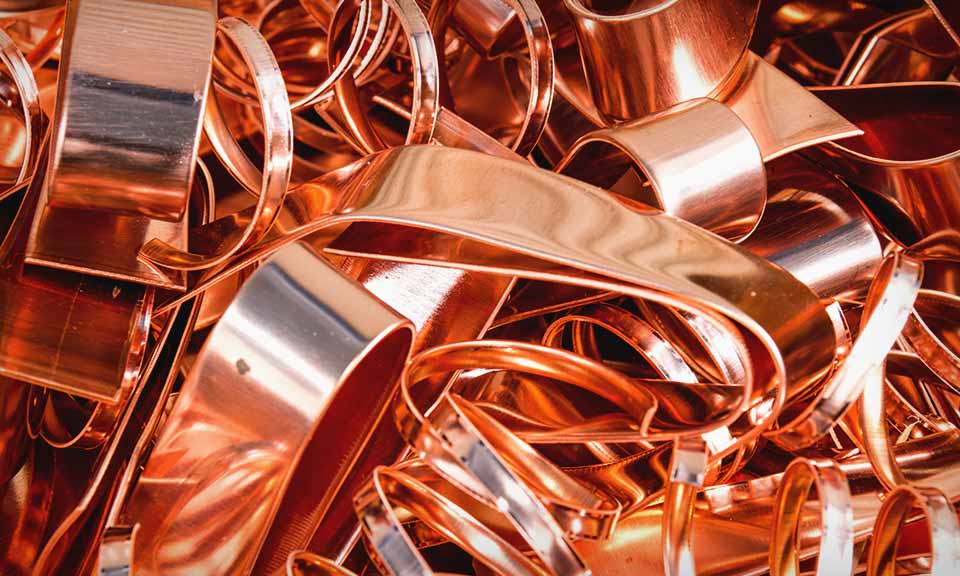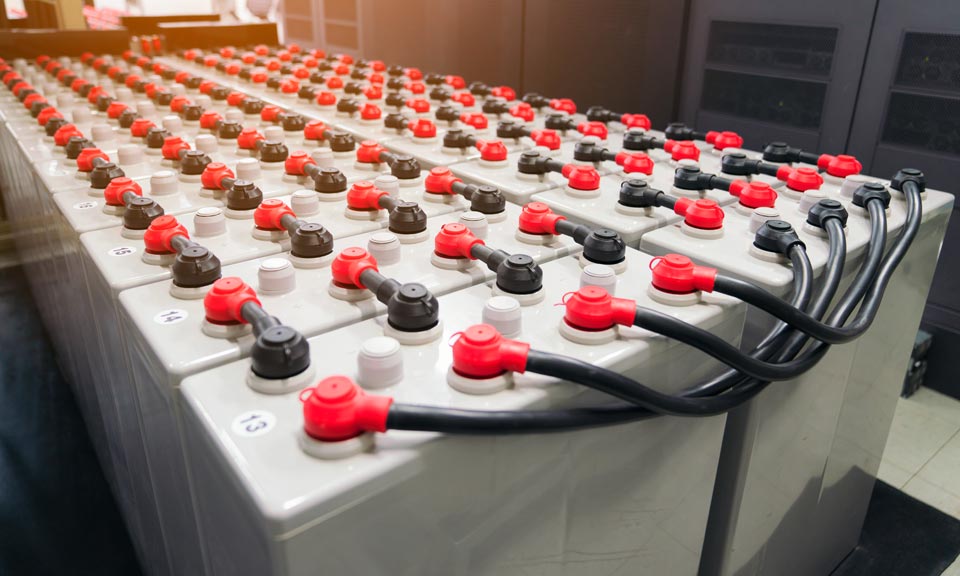Back in action: European mills restart idled blast furnaces on higher flat steel prices

Domestic coil prices rapidly rose in March 2022 due to panic buying triggered by Russia's attack on Ukraine on February 24. The market originally anticipated that the geopolitical tension would cut availability of steel and might result in shortage.
Against this expectation, steel demand suffered while supply remained on normal levels, despite a disruption of Black Sea supply and effects from sanctions. As a result, domestic coil prices in Europe had started to decline, with the negative trend lingering until December.
Coil producers across Europe reduced production rates in the second half of 2022, with some idling blast furnaces in an attempt to balance lower demand and supply and, consequently, prevent the decline of flat steel prices.
As operations at blast furnaces declined, iron ore markets suffered, especially the demand for pellets, while sinter and lump were incentivized in some cases due to lower comparative costs.
By December, European distributors have depleted the massive stocks accumulated in H1 2022. Restocking activities, combined with the effects from production cuts, rising import prices and high energy costs drove prices up.
Some of these idled blast furnaces have come back to life since the start of 2023, with European distributors restocking since December, and as European steelmakers respond to some improvement in demand and prices.
After finishing restocking in January, buyers have expressed concerns that higher prices might not be sustainable. This was due to stable end-user demand while availability of hot-rolled coil increased as a number of blast furnaces resumed operation.
Steelmakers, however, insist that they have good order books and demand remains solid to allow further price rise. In addition, import material availability had been limited, with HRC from Asia having long lead times and relatively high prices and exports from Turkey disrupted by the February earthquakes.
S&P Global Commodity Insights takes a look at the furnaces returned into operation in 2023, upcoming stoppages and anticipated changes in the European steel coil market. Northwest Europe
Germany
ArcelorMittal Bremen did not idle one of its two blast furnaces despite the original plans announced in September 2022. The steelmaker, however, had kept production at reduced rates and increased it when demand started to recover.
"Production levels are back to normal," an ArcelorMittal Germany spokesperson said.
Meanwhile, a direct-reduced iron plant at ArcelorMittal Hamburg, Germany, remained idled "due to overall economic situation", the spokesperson said. ArcelorMittal plans to resume production at the facility this year.
Another German flat steel producer, Szlagitter, postponed the restart of its blast furnace C in summer last year. The equipment remained idled in February.
Finland
SSAB resumed operations of the blast furnace at its Raahe steel plant in January after maintenance.
Netherlands
Tata Steel in the Netherlands did not idle equipment last year, but the company reduced production rates without stoppage. One of the plant's BFs will be closed for scheduled maintenance in Q2. Although the steelmaker accumulated some slab stocks ahead of the stoppage, production is likely to be reduced, according to market sources.
France
ArcelorMittal Dunkirk is currently operating two furnaces, while BF No. 2 "was permanently stopped in December as it is end-of-life," ArcelorMittal's spokesperson said. BF No. 3 has been idle since mid-September 2022.
ArcelorMittal Fos-sur-Mer, on the other hand, is preparing to restart a 2 million mt/year BF in Aprilthat, which was closed in November 2022. Market sources have expressed concerns that increased output from Fos-sur-Mer might have a negative impact on the South European market adding volumes and, therefore, potentially affecting the price recovery.
Italy
Domestic availability of the coil in Italy remained reduced as an integrated producer Acciaierie d'Italia (ADI) had limited production, electric-arc furnace operating mill Arvedi has been focusing on downstream coil trading, and re-rollers have limited volumes to offer.
In January, ADI unveiled plans for 2023: to increase crude steel production of 4 million mt in 2023 from below 3 million mt in 2022, according to market participants' estimates; to restart blast furnace No. 2; and to start the relining of blast furnace No. 5 in H2. The plans, however, have yet to result in higher production, according to market sources.
Arvedi had been operating on a limited number of days each month starting from Q3 2022, but the production recovered in 2023. Use of EAF allowed the steelmaker to better adjust to shifts in market demand and they increased production rates as soon as market started to recover.
Spain
ArcelorMittal Gijon restarted BF A at the start of 2023 after it was idled on Sept. 29, 2022.
Coil supply in Central Europe has been particularly impacted by both planned and unexpected stoppages at local mills and missing import volumes from Russian and Ukraine.
Slovakia
US Steel Kosice restarted two BFs in January and it has been operating all three of its furnaces since. The steelmaker has higher production costs compared to its peers and its production is unlikely to trigger price drop, according to the estimations of market sources.
Romania
Liberty Galati will resume pig iron and steel making operations in full when it restarts its only blast furnace in mid-March. The equipment was idled in June 2022.
Czech Republic
BF No. 2 located at Liberty Ostrava remains idle. The company declined to disclose any information about its possible restart. Market sources, however, said that the blast furnace is expected to resume operation after the company's production resumes in Romania.
Poland
In January, ArcelorMittal Dabrowa Gornicza resumed production at blast furnace No. 3 that has not been operating since October 2022. The steelmaker currently is preparing to shut its BF No. 2 this quarter for an extended overhaul.
Hungary
Dunaferr, that went under administration in December, resumed production at blast furnace No. 2 in mid-February. UK's Liberty Steel reportedly secured a deal with the Hungarian state, allowing it to draw a credit line in state-owned EXIM Hungary to manage Dunaferr. Liberty began to pay for raw materials and transportation fees and has already supplied 40,000 mt of coal to the mill.
Serbia
HBIS Serbia continued to operate one furnace after its blast furnace No. 1, which has a capacity of 900,000 mt/year, was shut in late November. The steelmaker, however, expects to see a production rise soon.

News
China's property sector has been in shambles over the past few years and remains the biggest drag on domestic steel demand. The property market has trended downwards in the first quarter of 2024. With no major recovery signs in new home sales, China’s new home construction starts are likely to remain on the downwards trajectory in the foreseeable future. The slowing property sector has triggered debt risks locally, leading Beijing to order local governments to downsize infrastructure projects, which has also undermined the growth momentum in infrastructure steel needs, adding to the demand slump. Click here to see full-size image

News
Plant will have an output of 80,000 mt/year Syrah delivered 10,000 mt of graphite fines to PT Indonesia BTR Chinese graphite exports "extremely limited" over Jan-Feb Chinese anode material producer BTR New Material Group is expected to start up an 80,000-mt/year active anode materials plant at Indonesia's Morowali Industrial Park, Central Sulawesi province, by the end of 2024, Australia-listed graphite producer Syrah Resources said April 8. The $478 million AAM plant will process synthetic graphite, supplied by Syrah and other suppliers, into anode materials. At the same time, Australia's Evolution Energy Minerals, in which BTR owns a 9.9% stake, is expected to supply 100% of the fine flake graphite produced from its Chilalo project in Tanzania to BTR for three years. Syrah said on the same date that it delivered a 10,000-mt break bulk shipment of natural graphite fines from its Balama graphite operation in Mozambique to PT Indonesia BTR New Energy Materials in Indonesia. The future of Syrah's Balama operation, which has a production capacity of about 350,000 mt/year, will be determined by the impact of China's export controls on the global market. China implemented export controls on natural graphite and its products, effective Dec. 1, 2023 . Citing January-February data from China's General Administration of Customs, "natural graphite fines and coarse flake exports were extremely limited," Syrah said. "Purified spherical graphite exports were 25%-40% of the 2023 monthly average and limited to South Korea." The 10,000-mt cargo to BTR is Syrah's "first large volume natural graphite sale to a battery supply chain participant destination outside China," Syrah said, following a trial shipment made in the first quarter of 2024. The delivery of the graphite cargo to Indonesia comes after Syrah signed a six-year deal to supply natural graphite fines to South Korea's Posco Future M in March . Data from S&P Global Commodity Insights showed that Platts assessed spot prices of natural flake graphite at $465/mt CIF Northeast Asia on April 5, flat from the session before, and spherical graphite at $2,060/mt CIF Northeast Asia, also unchanged from the previous session. Platts Connect: News & Insights (spglobal.com)

News
More processing of CAM, battery precursors for qualification with OEMs Center to focus on reducing CAPEX, OPEX; improving metal recovery rates Company to implement processes at commercial scale at planned Teesside recycling hub UK-based clean technology company Altilium has completed the expansion of its cathode active materials and EV battery recycling innovation center in Plymouth, it said April 5. The site has been expanded from 10,000 sq ft to 18,000 sq ft with the staff headcount increased to 70, it said in a statement. Without disclosing specific volumes, the company said the expansion would allow it to process larger volumes of CAM and battery precursors for qualification with OEM’s and battery cell manufacturers. Work completed on the facility includes a major electrical upgrade required to power the recycling facility, start-up EV battery recycling test bed and equipment procurement. Altilium said the innovation center, known as Act 2, would focus on reducing CAPEX and OPEX of future plants and improving the rates of metal recovery, particularly for lithium. The company plans to implement these processes at its planned Teesside recycling hub (Act 4). Announced in November, the Teesside facility, designed by engineering consultancy Hatch, will have the capacity to process approximately 50,000 mt/year of black mass. When batteries are manufactured or reach their end of life, production offcuts or used batteries can be collected, dismantled and shredded to produce black mass, from which critical metals including lithium, nickel, cobalt and manganese can be extracted. The plant will comprise two processing facilities: a chemical plant producing 95,000 mt/year of battery precursors including lithium carbonate and nickel sulfate, and a cathode active material plant producing 30,000 mt/year of CAM. The company said the facility, once fully operational, will meet around 20% of the UK’s CAM requirements. The recycling of black mass has become increasingly important as a supplement to virgin material supply, as well as to reduce the carbon footprint in the battery supply chain. In addition to its Teesside battery recycling plant, Altilium is also retrofitting its existing SX-EW hydrometallurgy plant in Bulgaria to produce battery intermediates MHP and lithium sulfate. The plant is being upgraded to process up to 8,000 mt/year of black mass, with commercial operations expected to start this year. On Feb. 22, SQM Lithium Ventures said is had increased its investment in Altilium by $9.43 million, bringing its total contribution to $12 million. The funding, done through SQM's investment arm SQM Capital Ventures, was part of the Series A financing round. Altilium’s Series B financing, which will focus exclusively on the Teesside project, is expected to launch during 2024, with the plant itself expected to take around 36 months to construct. Platts, part of S&P Global Commodity Insights, assessed cobalt payables for Ni-Co black mass ex-works Europe at 52% basis European cobalt metal 99.8% April 2, down 3 percentage points on the day and on the week. Platts assessed nickel payables at 52% basis LME nickel April 2, also down 3 percentage points on the day and on the week. Platts Connect: News & Insights (spglobal.com)

News
To build on EU's Critical Raw Materials Package Support, accelerate implementation of sustainable critical minerals projects The EU, US and other countries in the Minerals Security Partnership (MSP) have launched the MSP Forum to expand cooperation on critical raw materials required for the global green and digital transitions, the European Commission said in an April 5 statement. The MSP partners were joined by Kazakhstan, Namibia, Ukraine and Uzbekistan to launch the platform, it said, which will be co-led by the US and the EU. The EC added that the recently announced Critical Raw Materials Club would become a full part of the MSP Forum, bringing together resource-rich countries and countries with high demand for the resources. “This will create a greater, more ambitious joint initiative linked to the Minerals Security Partnership, where the European Commission represents the EU,” it said. The MSP Forum aims to build on the EU's Critical Raw Materials Package adopted in March 2023 and will form a project group to support and accelerate the implementation of sustainable critical minerals projects, the EC said. The forum will also create a policy dialogue to identify policies for boosting sustainable production and local capacities, facilitate regulatory cooperation to foster fair competition, transparency and predictability and promote high environmental, social and governance standards in critical raw material supply chains, the EC said. “The MSP Forum is a cornerstone of the EU’s strategy to secure a more sustainable supply of critical raw materials,” EC Executive Vice-President and Commissioner for Trade Valdis Dombrovskis said, adding that it would be key to reducing vulnerabilities and achieving the green and digital transition in Europe and globally. “With this global initiative, we want to make sure that international cooperation is up to the task of increasing investment, diversifying supply chains and bringing sustainable benefits to all parties,” he said. Critical raw materials are needed for numerous technologies in the energy transition, resulting in high demand, although supply is hindered by geopolitical, environmental and social risks and challenges. The EC estimates that EU demand for lithium used in electric vehicle batteries and energy storage will increase twelve-fold by 2030. Platts, part of S&P Global Commodity Insights, put both battery grade lithium carbonate and hydroxide assessments at $14,500/mt CIF Europe on April 4, both stable on the day and on the week, and down from $15,800/mt on Jan. 2. The EC said any partners that were ready to commit to the key MSP principles would be allowed to join the MSP Forum, noting that these principles included diversification of global supply chains and high environmental standards, good governance and fair working conditions. The co-leaders and current MSP partners plan to reach out to prospective members in North and South America, Africa, Asia and Europe to expand the Forum’s participation and start working within the project and policy dialogue groups. Besides the EU and US, the current MSP partners are Australia, Canada, Estonia, Finland, France, Germany, India, Italy, Japan, Norway, South Korea, Sweden and the UK. EU, Uzbekistan sign MOU In a separate statement, the EC announced that the EU and Uzbekistan had signed a memorandum of understanding to launch a strategic partnership on critical raw materials, which it said “underscored the partners' shared commitment to enhance cooperation in the field of critical raw material.” Under the partnership, the EU and Uzbekistan will work on establishing an operational roadmap with concrete implementation actions, the EC said. The partnership will focus on cooperating on the integration of sustainable value chains, increasing the resilience of supply chains and enhancing the transparency of measures related to investments, operations and exports. It will also focus on the mobilization of funding for projects resulting from the partnership and the development of infrastructure required for the development of value chains, as well as on cooperation to achieve sustainable and responsible production and sourcing of critical raw material, on research and innovation, and on building capacity to enforce relevant rules and on developing training and skills. Platts Connect: News & Insights (spglobal.com)